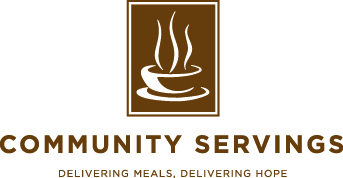Patients leaving the hospital are usually discharged with prescription medications. What they are too often missing is a prescription for the food they need to fight their illnesses – an overlooked aspect of care that is having a dramatic impact on patient care and costs.
On Thursday, October 30, 2014, the role of food in healthcare will be up for discussion during the second annual Food as Medicine Symposium, co-organized by Community Servings (a nonprofit organization that provides medically tailored home-delivered meals to individuals battling life-threatening illnesses) and the Center for Health Law and Policy Innovation of Harvard Law School (that advocates for legal, regulatory, and policy reforms to expand access to high-quality healthcare and nutritious, affordable food; to reduce health disparities; and to promote more equitable and effective healthcare and food systems.)
The Symposium, which will take place at the Harvard Law School campus in honor of Food Day, offers an in-depth look at the critical role that nutritious, medically tailored meals and food play in outcome-driven, cost-effective healthcare. Panelists, representing various sectors of the healthcare industry, will speak about innovative new partnerships between food providers and health insurers in Massachusetts, cutting-edge research that demonstrates the efficacy of food as a medical intervention, and policy reform opportunities to further integrate healthy food into routine medical care.
In the continuing debate about how to control soaring healthcare costs, malnutrition and access to food is often ignored, despite its proven ability to decrease re-hospitalization rates, increase adherence to medication and improve energy levels and the overall quality of life for the patient. According to a recent survey by Feeding America, 66 percent of Americans must choose between paying for food or medicine.
Home delivered meals programs, particularly those that offer disease-tailored diets such as renal, diabetic or low sodium, have been incredibly successful. Not only do they provide the nutrients that these patients need to stay in treatment and recover faster, they relieve the individual of the overwhelming stress associated with grocery shopping and cooking for themselves and their families.
Just as important is the potential impact that food as medicine could have on costs. Providing individuals with nutritious meals at home costs about $20 a day, compared to an average Massachusetts hospital stay of up to $2,500 a day. One study estimates that the cost of treating nutrition-risk patients is 20 percent higher than treating a well-nourished patient with the same disease.
A major milestone was achieved earlier this year when The Center for Health Law and Policy Innovation at Harvard Law School released a national report entitled Food is Medicine: Opportunities in Public and Private health Care for Supporting Nutritional Counseling and Medically Tailored, Home-Delivered Meals. The report presented a roadmap for the healthcare industry to better understand the idea of food as medicine. It also explored the ways in which public and private healthcare programs like Medicaid, Medicare and new marketplace health insurance plans can support access to nutritional counseling and medically tailored home-delivered meals.
To learn more about Community Servings, please visit http://www.servings.org/about/mission.cfm
The Food is Medicine report is available for download on the Center for Health Law and Policy
Innovation website at www.chlpi.org.
For more information regarding the Food as Medicine symposium or to register please visit: http://www.foodday.org/jterranova/second_annual_food_as_medicine_symposium




